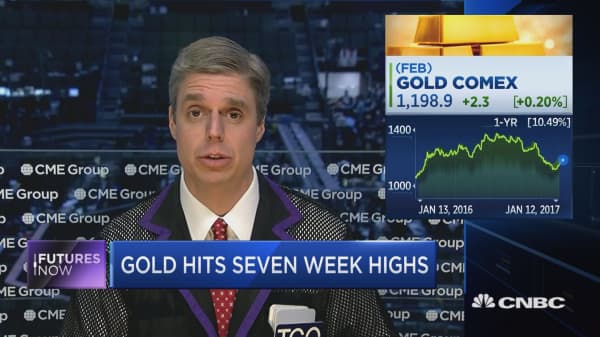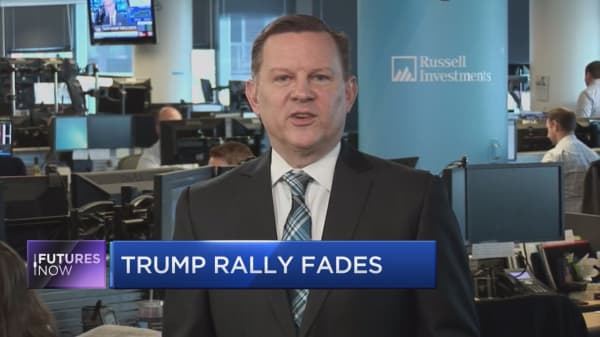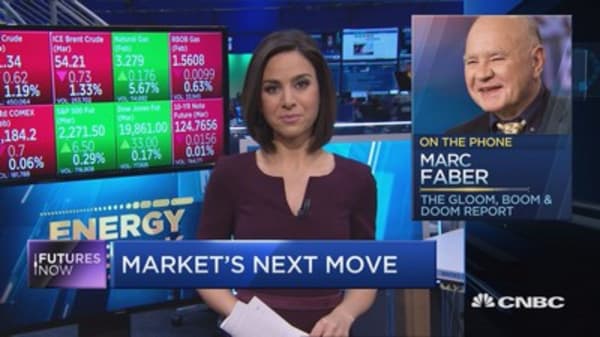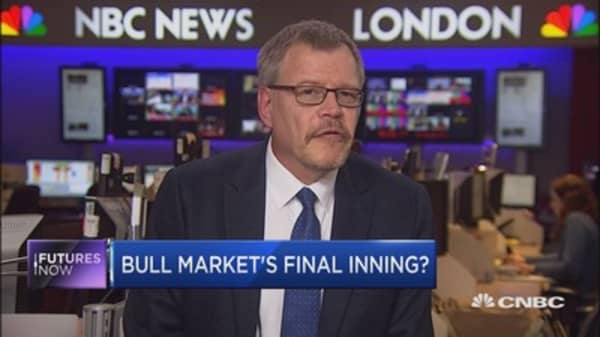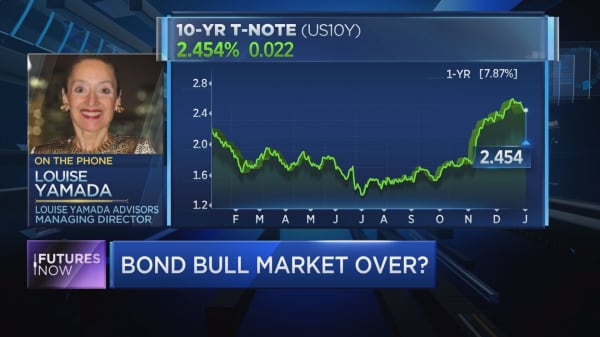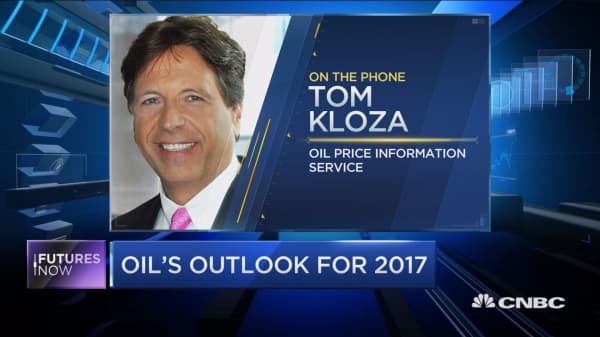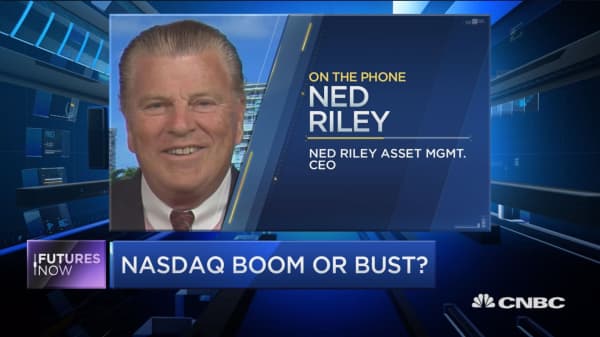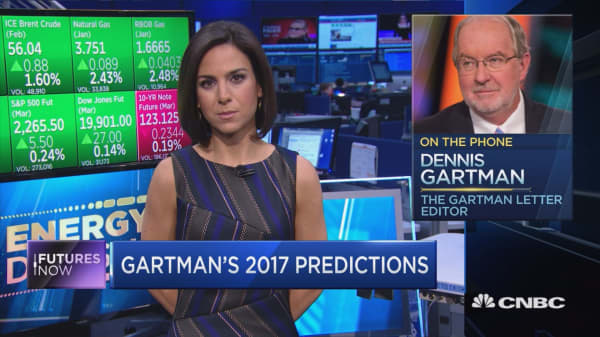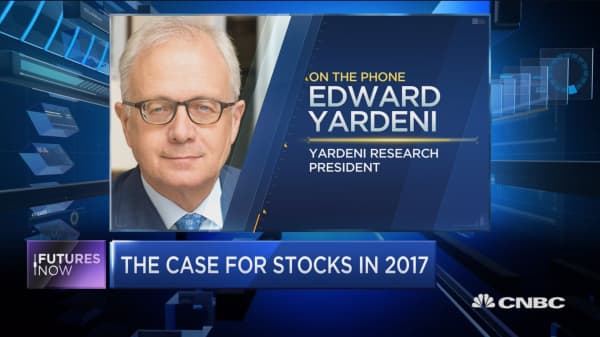Believe the Trump rally is losing its footing? You may want to explore investing in gold.
Ambrosino Brothers Senior Vice President Todd Colvin, a trader who has worked on the Chicago Mercantile Exchange trading floor for more than 20 years, pointed out some key patterns that currently support owning gold.
"Equities remain very elevated, and we're starting to see VIX call buying come in with both hands which suggests there's fear of a downside move," said Colvin on "Futures Now" last week.
"We're looking at treasury yields creeping lower as well. So you've got everything kind of dynamically moving here," he said. "Gold is a good place to park some money until we start to see the dust settle."
Last week, the Dow Jones Industrial Average came within a whisker of 20,000, a key psychological level, for the first time on December 13. Despite the index's failure to hit that milestone, the index has actually soared eight percent since the November presidential election.
During that same period, gold prices have fallen more than six percent, a sign that the yellow metal might be poised to rebound. Bullion recently set an important bottom near $1130 per ounce, a level traders are now watching very closely.
"This market is way, way oversold on the fact that everything is solved and the [Federal Reserve] is going to raise rates and the economy is back on its feet. I'd like to see some proof in this first quarter data before I write that off," he said.
The latest earnings season kicked off Friday, with Bank Of America, JPMorgan Chase, and Wells Fargo reporting quarterly results. They were seen largely as a bullish sign for the economy.
Yet it could still shape up to be a long season, as a new administration takes the helm at the White House. President-elect Donald Trump's inauguration is Friday, and the uncertainty surrounding which economic policies could be enacted is contributing to Colvin's case to own gold.
"I think gold right now is a kind of wait and see place to be," he said. "Certainly, the Fed is going to have an influence, the dollar is going to have an influence—but ultimately all that is very over-hyped and I think the market needs to take a step back, and gold is a good place to watch from," Colvin added.
Even though Colvin projects the precious metal should reach $1250 an ounce over the next 30 to 60 days, he is telling investors to be vigilant.
"Right now we need to see a $1200 [an ounce] sustainable trade in gold," he said. "If we can't hold it, $1175 is your downside 'get me out' because if we get back down there, I think it starts to turn a little negative."






